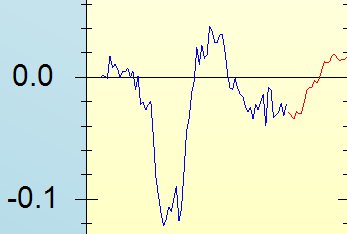In a recent paper,
Robert Gilhooly, Martin Weale and Tomasz Wieladek have shown that the application of different estimation methods lead to widely varying conclusions about how output growth has been affected by (i) demand and (ii) productivity over the recent past. While traditional measures suggest that, for the UK, demand deficiency is almost uniquely responsible for slowdown, the application of a more refined method suggests that demand and productivity effects are equally responsible.
Essentially, the method proposed by Gilhooly, Weale and Wieladek is designed to compensate for biases that result from the fact that the fortunes of different sectors of the economy are intertwined at any point in time. Traditional methods that are used in this context do not work well when the time period under consideration is short, but these authors finesse this problem by adopting Bayesian methods. They argue that superior forecasting properties of their model suggest that its results should be taken more seriously than those of exercises based on other methodologies.
An important question then remains: if as much as half of the drop in output has been due to a fall-off in productivity, how can this fall-off have happened? If the findings imply that, over the course of the recession, we have unlearned the lessons of how to produce efficiently, then it is reasonable to question how such amnesia can occur.
To some extent, the decline in real wages may have allowed firms to retain labour while tolerating a fall in productivity - a fall that in itself reflects a drop in demand for the firms' output. Labour hoarding of this kind is readily explained in a context where firms expect a rapid return to growth and anticipate future labour shortages. It is not clear that this is the case now.
Another explanation may be that high productivity sectors have declined for secular reasons - for example, as natural resources have been depleted, the output of the extractive industries has fallen. This might suggest that there is a more permanent element to the decline in productivity, and that we should not output to grow rapidly to its previous high level.
It is possible, therefore, to put a rationale on the findings of Gilhooly et al. that productivity decline has been an important driver of recession. More work is probably needed before it is safe to conclude that this explains as much of the drop in output as the authors suggest. But their research certainly serves a purpose in reminding us that there is work to be done on the supply side of the economy as well as on the demand side as we seek to climb out of recession.






